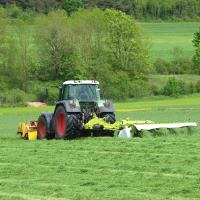(BRUSSELS) – Brussels is proposing to increase the maximum amount of agricultural state aid that Member States can distribute without prior notification from EUR 15,000 to EUR 25,000, over three years, per farm holding.
In the context of the Common Agricultural Policy, the so-called ‘de minimis’ rule defines the amount of aid that can be paid without being considered as a state aid within the meaning of the Treaty. If the member states stay within the de minimis thresholds, they do not have to respect any (further) state aid rules, i.e. they do not have to notify such payments to the Commission and wait for a Commission authorisation, nor do they have to ‘block exempt’ such payments under the ‘block exemption regulation’.
The Commission says ‘de minimis’ aid has proved particularly useful in times of crisis as it enables speedier reaction in helping farmers overcome emergencies, such as temporary liquidity gaps.
It is responding to Member States’ call to increase the ceiling of this aid which will allow them to distribute funds on a bigger scale and more quickly without going through the necessary notifications.
To ensure that no market distortions occur, an additional safeguard is introduced: a single agricultural sector cannot receive more than 50% of the total amount of the national de minimis aid.
The EU executive is also proposing to create a central registry which Member States will have to set up and use. This will make the monitoring of the aid’s use and distribution simpler.
The Commission is currently seeking feedback on its proposal from public authorities across the EU having made use of this tool.
The consultation remains open until 16 April 2018.
The proposal is expected to be adopted in the summer by the Commission after consulting the Member States.



